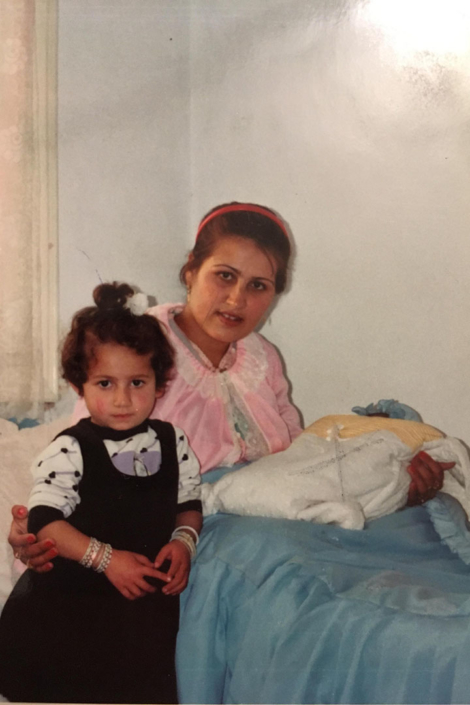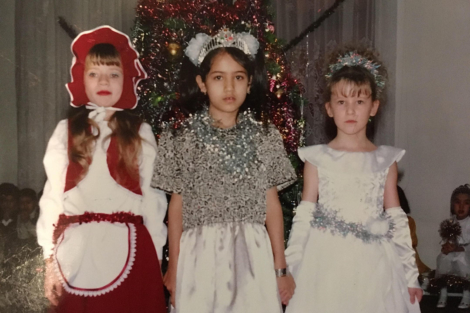Intersections is a new features sub-section exploring multiculturalism and diaspora in Toronto. Students consider how their cultural backgrounds have influenced their experiences, perspectives, and stories.
I’m not the kind of person who is open and expressive. This isn’t because I have anything to hide; I just tend to stay away from questions about me because it can get complicated. Simple questions like ‘where are you from’ make me a little uncomfortable. When people say things like ‘I thought you were European,’ it makes me feel weird.
Is it a compliment? I thought it was once, but not anymore.
As I’ve grown up and entered adulthood, I’ve started to find comfort in my discomfort. Everywhere I looked, there was absolutely no representation of people like me. And when I tried to look for it, I found it in the people broadcasted on the 8:00 pm news, covered in blue burqas in a dusty city where bombs were dropped and terrorist attacks had been happening for years.
I’m from Afghanistan. Well, sort of. This is where it gets tricky. Let me explain.
I was born in 1996. That was the year the Taliban rose to its ultimate power and covered most regions of the country. Afghanistan was no longer safe for my parents, who wanted a peaceful life for their little family. Days before I was due, my parents sought refuge in Pakistan, where I was born.

January 14, 1996, in Peshawar, Pakistan. I’m only a few hours old with my older sister and mom. Photo Courtesy of the Asadullah Family.
We moved back to Afghanistan a few weeks later, where my parents spent a year or so trying to live simply — it was nearly impossible. My parents decided to leave and again sought refuge, this time in Kyrgyzstan. I spent the first eight years of my life there, where I spoke fluent Russian, attended school, and made friends from all over the world.
Evidently, it can get tricky telling people where I’m from — I don’t even fucking know! My parents are Afghan. I was born in Pakistan. I was raised in Kyrgyzstan. And now I’m here, a full Canadian citizen. Who am I, even?
The question of identity and what constructs mine has been lingering in my mind for some time. The simplest answer I could come up with is that I’m part of the Afghan diaspora. I’m just an Afghan person who has immigrated to other countries. It should be enough, right? But it isn’t.
The ongoing war in Afghanistan — a place where I feel I should have been born and raised — has permanently affected millions of people in and around the country, including me. I can’t help but think my displacement was a product of war. The country where my ancestors settled and where my history was created is now a place I will not be a part of. I will never fully be an Afghan. And if I ever go back to Afghanistan, I will always be a foreigner there. For me, this is the saddest thing with which I’ve come to terms.

At a school event in, Kyrgyzstan. It was a mix of Halloween and Christmas. I’m the one in the middle, and I can’t remember my friends’ names. Photo Courtesy of the Asadullah family.
In an effort to make myself feel better, I’ve made it my mission to cultivate and express my Afghan side as much as possible. I’ve started listening to Afghan music, watching news and shows broadcasted from Afghanistan, and learning more about the history of my home through research and observation. I even made an effort to attend the Afghan Students’ Association’s Arts Night at U of T. It was my way of trying to network and find more people that may have experienced an early identity crisis.
But it was a mess.
There was little to no connection between any of us in the Afghan diaspora within the city. What should have been a night of us connecting with each other turned into a night of me having to witness a bunch of 20-somethings too intimidated by each other to speak about anything remotely related to Afghanistan. No one was invested in the actual artwork placed around the gallery or paid much attention to the music, poetry, or songs. It was just a bad dating scene.
The event left me disappointed and with much less to work with than before I attended. However, I think there are a lot of people like me, beyond fellow Afghans, who feel like their identity is incomplete, missing in some sense. In my case, it just a tad more complicated. I’m choosing to accept this incomplete identity and find comfort in this uncomfortable situation.
If you and I ever meet and you ask me the ‘where are you from’ question, I’m sticking with, “I’m from Afghanistan.” However, I always know there is more to me and my story than just that.


